Animals
-
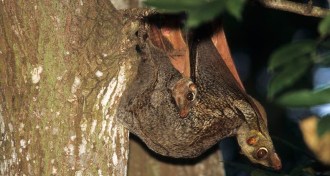 Animals
AnimalsColugo genome reveals gliders as primate cousins
New genetic analysis suggests gliding mammals called colugos are actually sisters to modern primates.
-
 Animals
AnimalsColugo genome reveals gliders as primate cousins
New genetic analysis suggests gliding mammals called colugos are actually sisters to modern primates.
-
 Earth
EarthGeneral relativity has readers feeling upside down
Readers respond to the June 25, 2016, issue of Science News with questions on Earth's age, moaning whales, plate tectonics and more.
-
 Paleontology
PaleontologyT. rex look-alike unearthed in Patagonia
A new dinosaur species discovered in Patagonia has the runty forearms of a Tyrannosaurus rex, but is not closely related to the gigantic predator.
By Meghan Rosen -
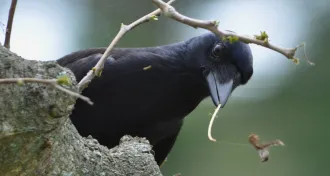 Animals
AnimalsBetty the crow may not have invented her hook-bending tool trick
Textbook example of Betty the crow’s proposed insight into toolmaking is now called into question by observations of similar hook bending by wild New Caledonian birds.
By Susan Milius -
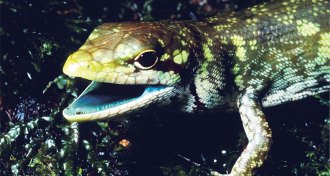 Animals
AnimalsThese lizards bleed green
Blood and bones turn naturally green in island lizards. Their evolutionary history still needs explaining.
By Susan Milius -
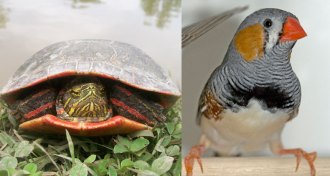 Genetics
GeneticsAncient reptiles saw red before turning red
The discovery that birds and turtles share a gene tied to both color vision and red coloration is more evidence that dinosaurs probably saw the color red — and perhaps were even red, too.
-
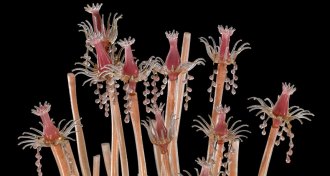 Science & Society
Science & SocietySea life stars in museum’s glass menagerie
See Leopold and Rudolf Blaschkas’ delicate glass jellyfish, anemones, sea worms and other marine invertebrates at the Corning Museum of Glass.
-
 Paleontology
PaleontologyNew fossil suggests echolocation evolved early in whales
A 27-million-year-old whale fossil sheds light on echolocation’s beginnings.
-
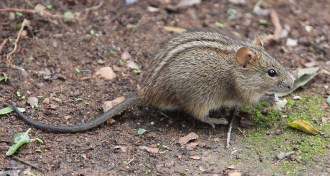 Animals
AnimalsSmart mice have better odds of survival
African striped mice (Rhabdomys pumilio) may survive summer droughts by their wits, a study suggests.
-
 Animals
AnimalsBird-friendly yards have a major downside — for birds
Vegetation and feeders bring birds into our yards. But those lures also bring more birds to collide with the windows in our homes.
-
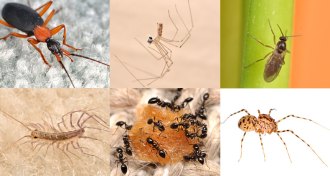 Animals
AnimalsDiversity of indoor insects, spiders adds to life’s luxuries in high-income neighborhoods
A massive survey of indoor spiders and insects in town finds dozens of different scientific families in homes, more in high-income neighborhoods.
By Susan Milius